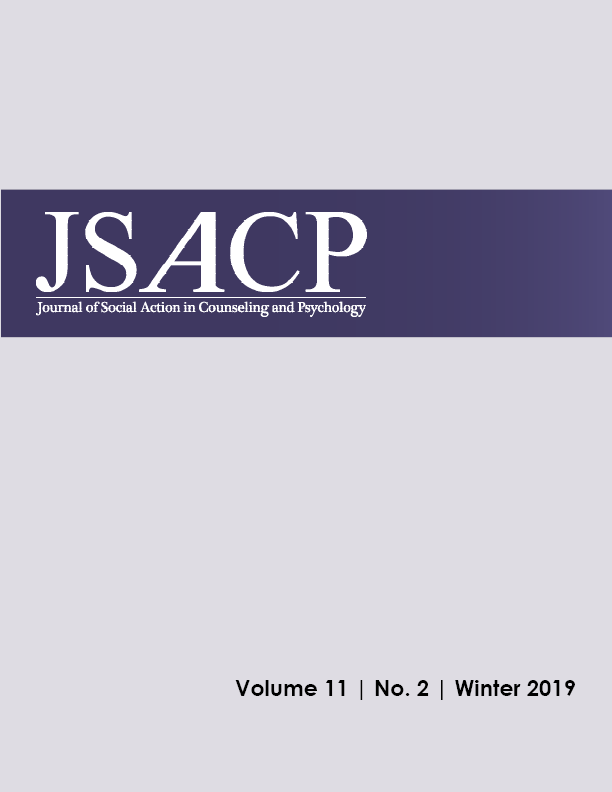Advocacy-in-Action: Case Portrait of a Helping Professional Pursuing Positive Social Change for Transgender and Gender-Expansive Youth
DOI:
https://doi.org/10.33043/JSACP.11.2.17-34Keywords:
advocacy, transgender, gender-expansive, helping professional, counselorAbstract
Transgender and gender-expansive youth experience discrimination and marginalization in the healthcare setting, school environment, their communities, and families. These experiences of rejection and adversity are correlated with higher rates of suicidality, depression, and other mental health concerns. Helping professionals play an essential role in mitigating experiences of oppression by advocating for positive social change for their transgender and gender-expansive clientele. Through the provision of a single case portrait, this article explores the advocacy-in-action of Craig, a helping professional and advocate, as he pursues positive social change for transgender and gender-expansive youth. Merriam’s (1988) interpretive case study was used to guide data collection and findings. Emergent themes provided concrete examples of how the American Counseling Association (ACA) endorsed an advocacy model, and the Association for Lesbian, Gay, Bisexual, and Transgender Issues in Counseling Competencies for Counseling Transgender Clients apply to this population. Including the concepts of intrapersonal and interpersonal advocacy to the current advocacy model is critical to advancing the health of transgender and gender-expansive youth. Implications for counselors and counselors in training will also be discussed.
Downloads

Downloads
Published
How to Cite
Issue
Section
License

This work is licensed under a Creative Commons Attribution-NonCommercial-NoDerivatives 4.0 International License.
By submitting to JSACP, the author(s) agree to the terms of the Author Agreement. Beginning in 2018, all authors retain copyrights associated with their article contributions and agree to make such contributions available under a Creative Commons Attribution-NonCommercial-NoDerivatives 4.0 International license upon publication in JSACP. Copyrights to articles published prior to 2018 have been transferred from the authors to JSACP.








